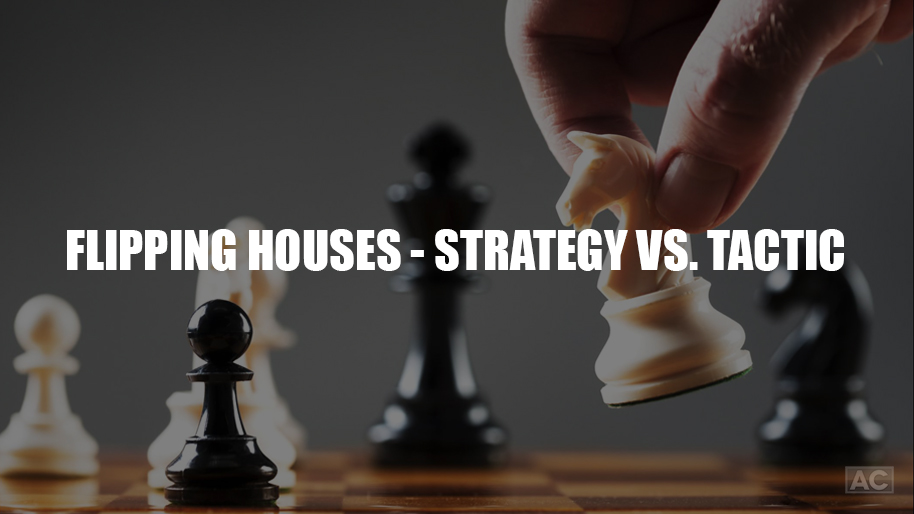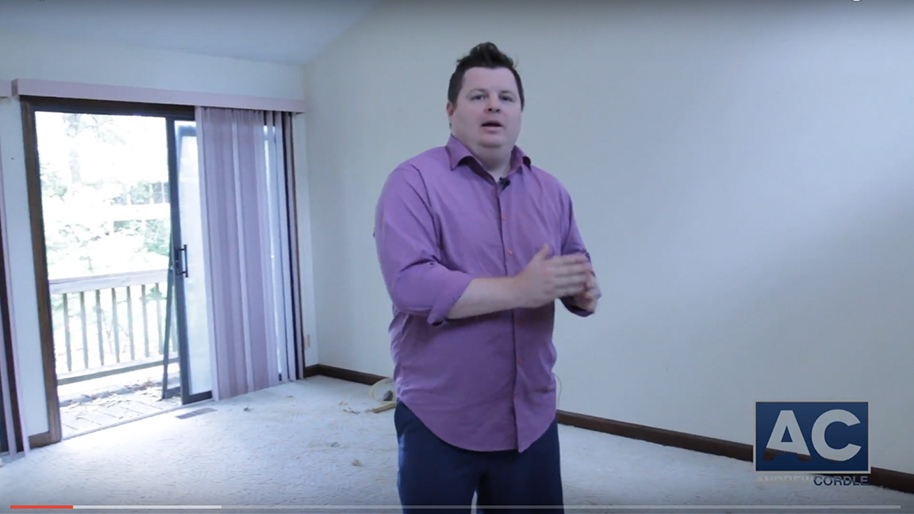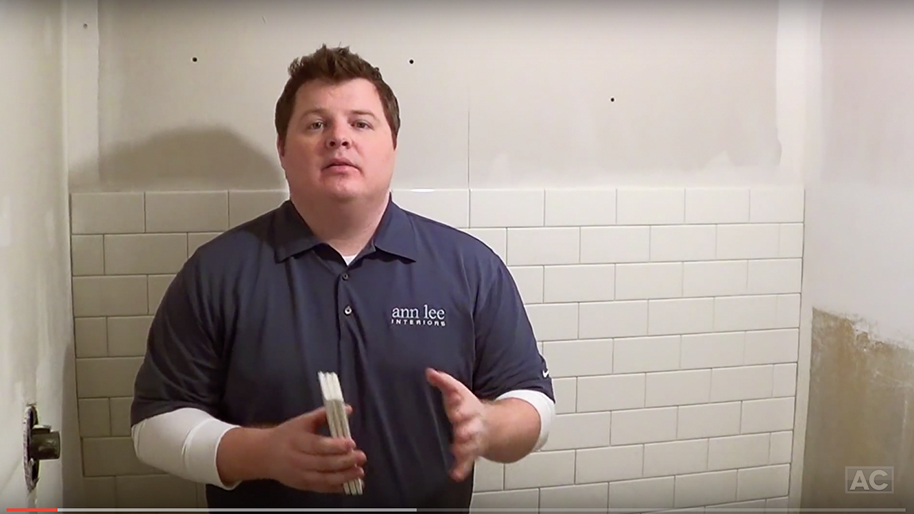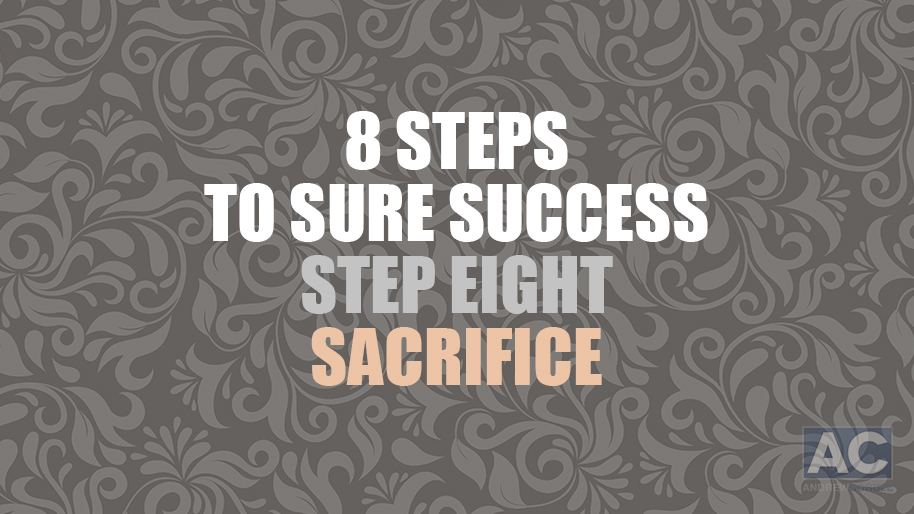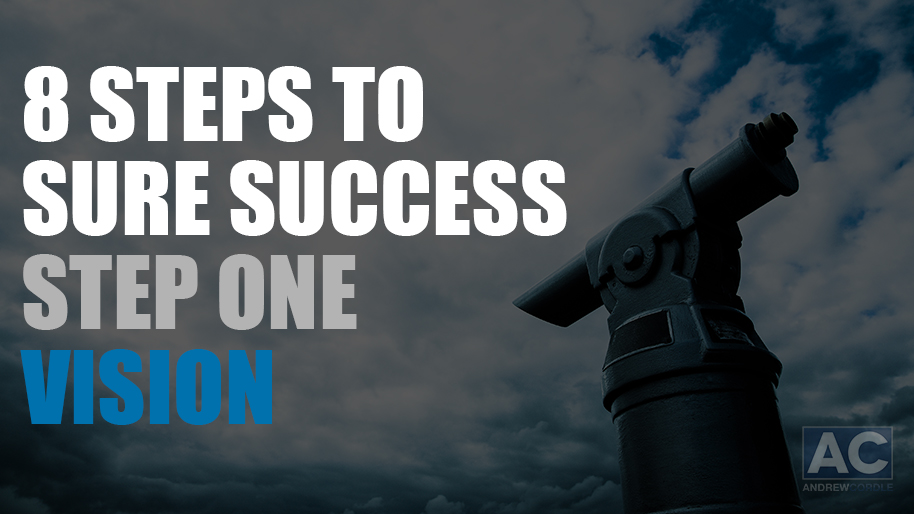4 Ways to Flip A House with No Money
June 15, 2015
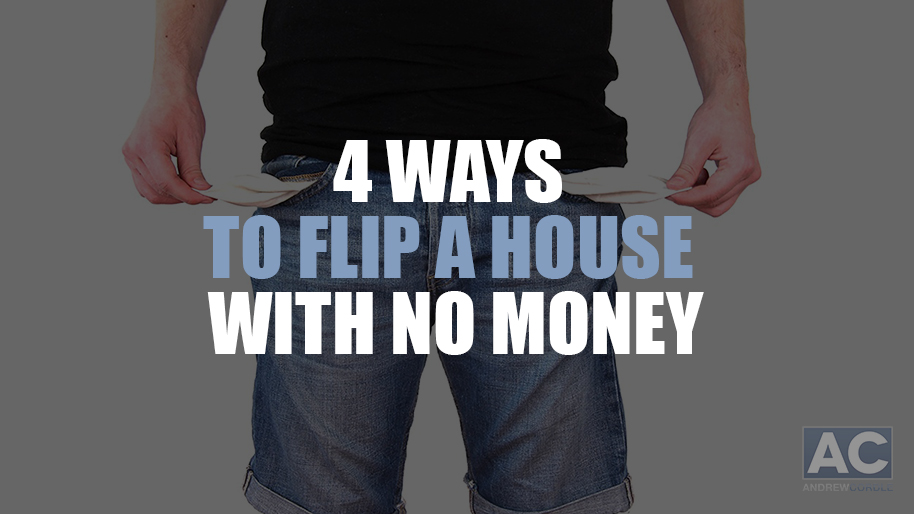
You can flip a house with no money!? For the most part this is true. As a real estate investor starting out you can flip a house with no cash of your own. You just have to build the right relationships. Real estate is a relationship business, and building the right ones in the right way can get your career of the ground in a hurry.
This post is all about learning to flip a house with no money. There are four different options to explore which I will be covering in detail. These aren’t all of the options out there for real estate investors to leverage, but these are the four that are most widely used and battle tested.
Hard money lenders
Hard money lenders are a great way to get financing if you are trying to flip a house with no money of your own. They offer a specialized type of real-estate backed loan. These lenders provide funding based on the value of the house being put up for collateral and charge much higher interest rates than banks. Why is that? The majority of the deals these types of lenders fund do not conform to bank standards like verification of borrower’s income, assets, or credit score.
What are some of the risks when dealing with hard money lenders? For a new or first time real estate investor trying to flip a house with no money, it may be hard to provide your “ability to repay.” Hard money lenders will most likely require tax returns and bank statements. If you are a seasoned investor and have no problems providing this, some other points to pay attention to would be the higher interest rates and shorter term loans.
If you are going to look into hard money lenders, make sure to get information from more than one. Different lenders will have different requirement, interest rates, and different terms.
- Great if you already have a house under contract
- Be prepared to put your property up for collateral
- May need to provide ability to repay
- Look into more than one
Private money lenders
Private money lenders are people or companies outside of banks who can provide you with the money you need to flip a house. These loans are normally secured by a note or a deed of trust. Compared to hard money lenders, these types of lenders are normally found through personal relationships. Securing a relationship with a private money lender won’t just help you flip a house with no money of your own, but many houses.
Finding a private money lender might be easier than you think. You can start with people that your regularly communicate with. Friends, family and coworkers are all great places to start. They are easy to talk to and are typically easier to get a yes out of. Another great source of funding is going your friends of friends. Reaching out to associates of your friends, family and coworkers is another great tactic. You’ve already been “pre-approved” by the people closest to you, so this second tier of contacts will be more open to your ideas.
Keep in mind that if you are reaching out to private lenders make sure you are asking for money that they don’t mind losing. For newer real estate investors, there is always the chance that your investment could go south on you.
- Private lenders are way more relationship oriented than hard money lenders
- Your primary targets should be friends, family and anyone else you talk to regularly
- Your “friends of friends” should make up your secondary pool
- Don’t insist on borrowing money from somebody who will be upset if the investment goes sour
Partner Up
This is another extremely relationship oriented way to flip a house with no money. Not just anybody will jump up and offer you tens of thousands of dollars to fund a venture that may or may not work out. However, with the right plan in place and the right team you can effectively eliminate your potential lender’s worries. The partner strategy is actually perfect for real estate investors who are new to the business!
Chances are that when you partner up with somebody it will be a family member or close friend. These people are the easiest to approach, so it makes the most sense to start there. Give them the details on what you plan to do with their money and offer them an even split of the profits. If your venture works out, you will have successfully paid back your lender plus extra and put money into your pocket without spending a dime.
Again, make sure that whoever you partner up with will part with their money willingly. Don’t guarantee them that they will see a return on their investment. It is an investment opportunity.
- Have a strategy in place to ease your partner’s mind
- Offer a 50/50 split of the profits
- Remind them that it is an investment opportunity, not guaranteed money
Talk to Other Professionals
Your professional network could provide another way to flip a house with no money. Now, what do I mean by professional network? These are people who you do business with. Your insurance person, your lawyer, your doctor or anybody else whose services you pay for. You don’t necessarily want to ask them for cash. You want to ask them if they know anybody who would be interested in an investment opportunity. This could either lead to you finding a private money lender or a partner. You can also look to other real estate investors for advice on who you should talk to. The investors themselves could even be interested.
- Reach out to your professional network
- Ask if they know anybody who could be interested in an investment opportunity
- Reach out to other real estate investors
These four tactics have been used time and time again to flip a house with no money. They keep you from having to go directly to the bank and ask for it while still getting you the funds you need. Whether you are using a hard money lender, private lender, a partner or any other interested party, take the time to develop your relationships.
Real estate is a relationship business, and you should always be thinking long term. You may have to go out and find funding for your first deal, but you shouldn’t have to for every deal after that. The relationships you build are the foundation for your success.





